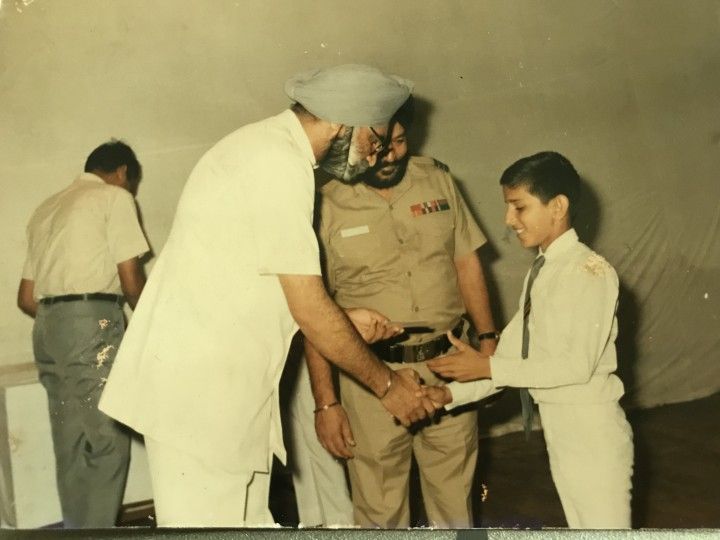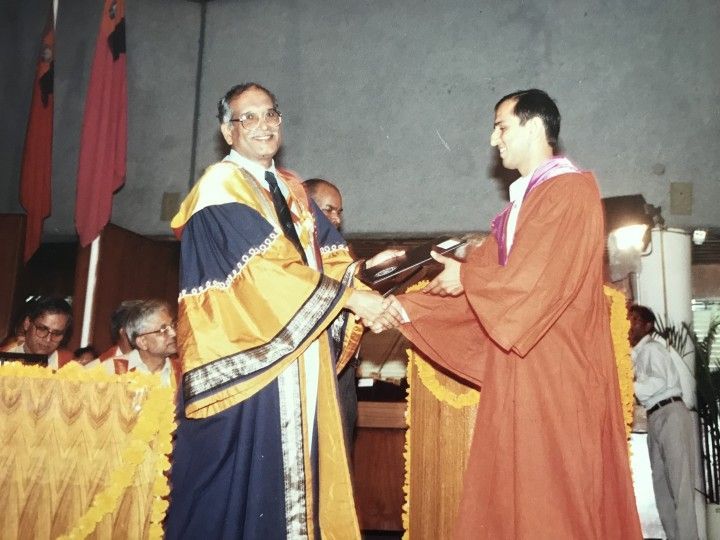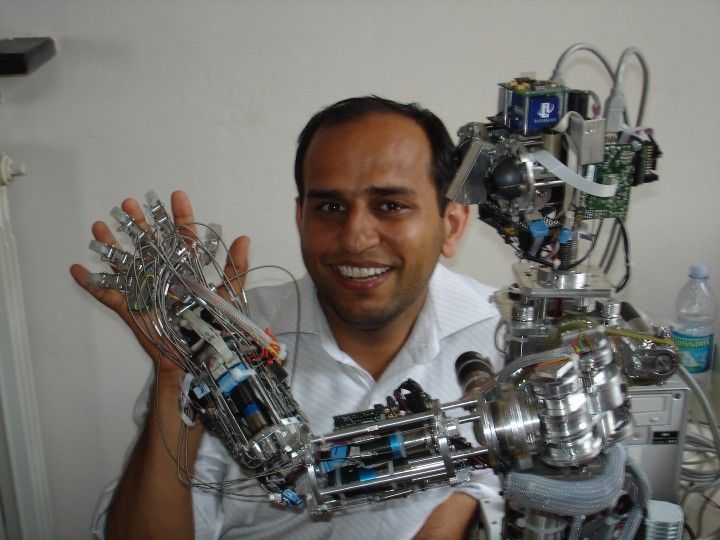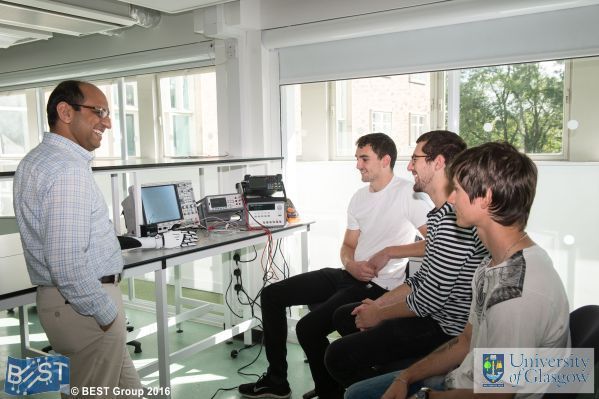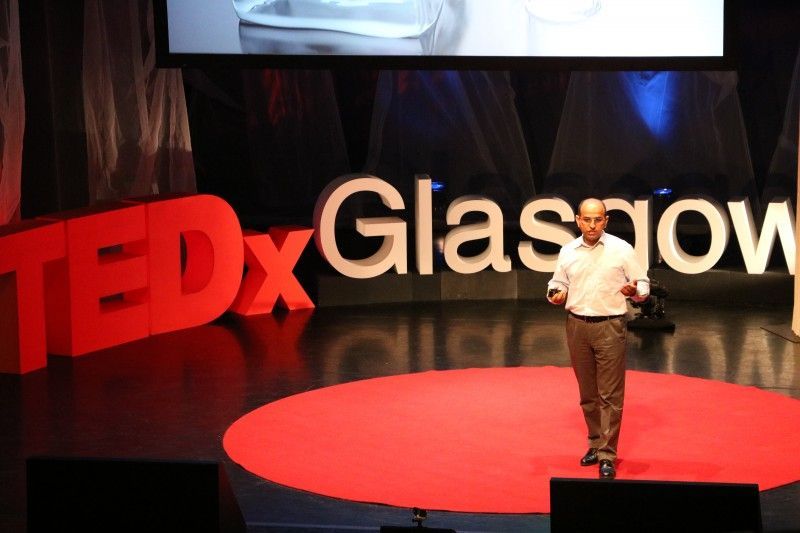Scotland is Technological Advances
Prof. Ravinder Dahiya
After studying all over the world, from India to Italy, Prof. Ravinder Dahiya chose Scotland’s Glasgow University to develop his pioneering work on prosthetics.
Prof. Dahiya and his team are working on flexible electronics in relation to prosthetic limbs. In simple terms – he is developing electronic skin that can help amputees regain sensory feelings in their prosthetics!
But what drew him here? Why Scotland, and why now? Prof. Dahiya was attracted to Scotland by its scientific heritage, its technological ingenuity and its ability to embrace new ideas. He jumped at the chance to add to this amazing legacy of pioneering research.
“Every young engineer is drawn to Glasgow because of its rich scientific heritage and because of past giants like Watt, Rankine and Kelvin who started engineering here during the industrial revolution – that’s a big, big factor […] you want to be like them, be one of them and that keeps you ticking. It kind of, you know, pushes you do to more”.
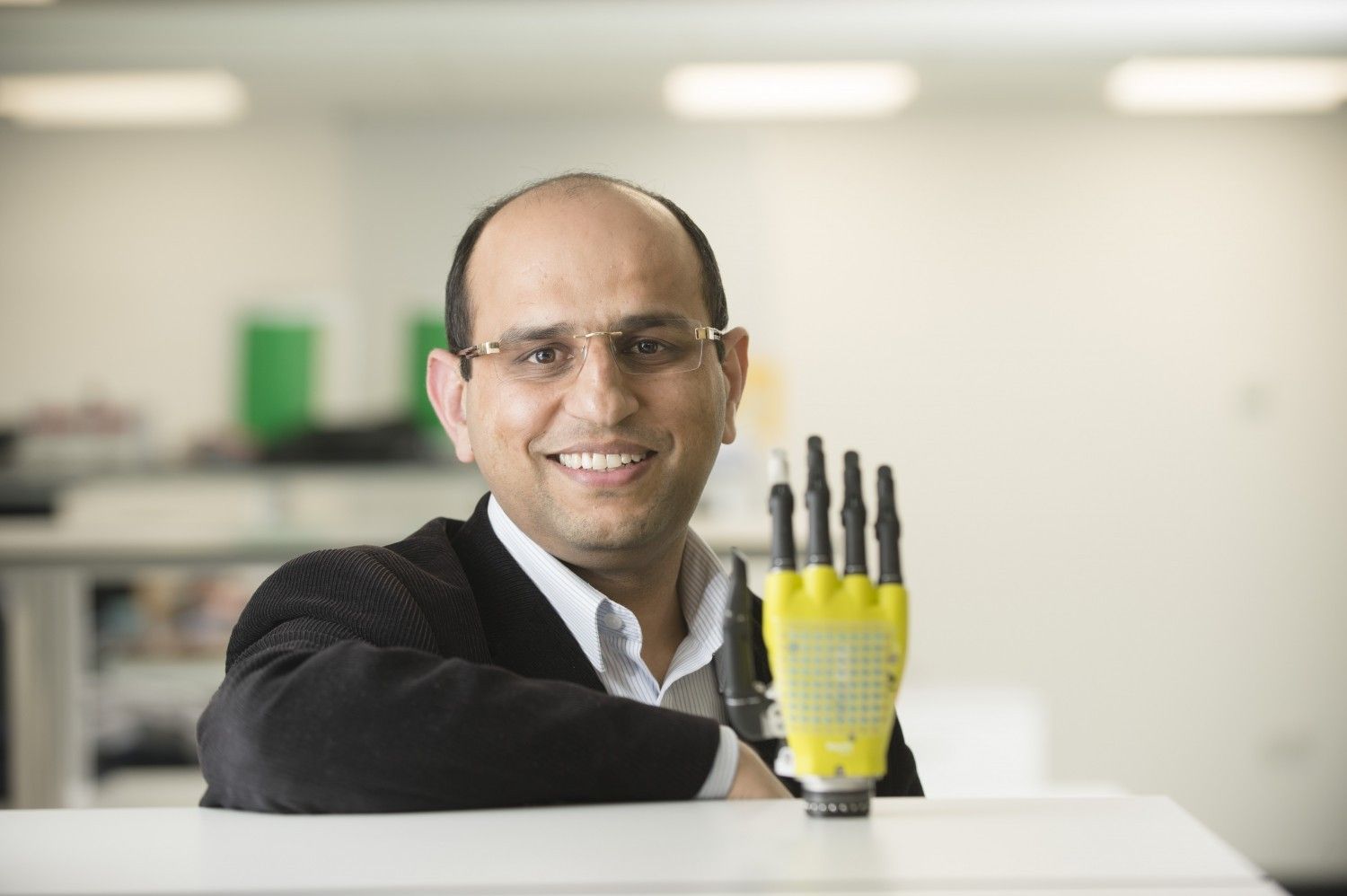
Prof. Dahiya’s work will fundamentally change the lives of amputees as his electronic skin will provide the necessary sense of touch that’s missing from robotics, allowing them to react to objects around them.
“Current prosthetic limbs have quite dextrous movements but it’s very difficult for an amputee to feel if the object they’re touching is hot or cold. But with electronic skin they’d be able to feel those objects and be able to feel if it’s soft or hard or if the surface is smooth or rough. These are the kinds of abilities that electronic skin will provide”.
Scotland has a well-earned reputation for providing a warm and open welcome to everyone who chooses to come here and Prof. Dahiya’s research team is a perfect example of this. His team is made up of 17 different nationalities across a wide range of professions from doctors and clinicians to biologists, physicists and engineers, all working together in harmony toward a single goal that will change lives.
“There’s significant collaboration between academia and industry which makes Scotland quite a unique place […] the environment is multi-disciplinary, meaning I find it easy to collaborate with people from the business school to social scientists, which I wouldn’t have been able to do in a typical technology or engineering centre”.

